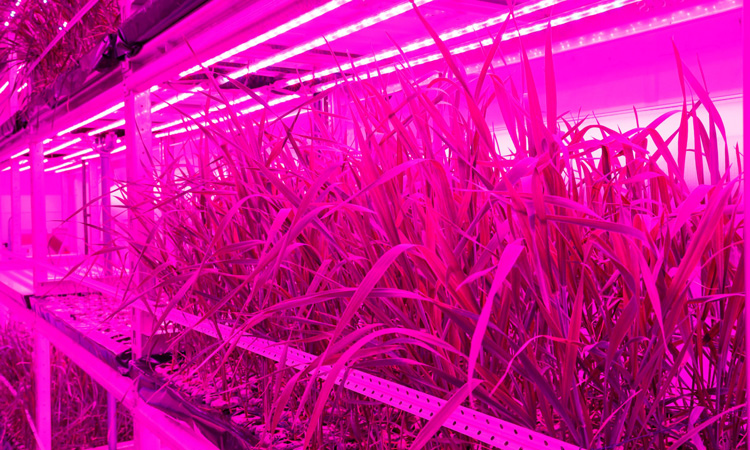SpaceBakery project to research feasibility of baking bread on Mars
- Like
- Digg
- Del
- Tumblr
- VKontakte
- Buffer
- Love This
- Odnoklassniki
- Meneame
- Blogger
- Amazon
- Yahoo Mail
- Gmail
- AOL
- Newsvine
- HackerNews
- Evernote
- MySpace
- Mail.ru
- Viadeo
- Line
- Comments
- Yummly
- SMS
- Viber
- Telegram
- Subscribe
- Skype
- Facebook Messenger
- Kakao
- LiveJournal
- Yammer
- Edgar
- Fintel
- Mix
- Instapaper
- Copy Link
Posted: 28 November 2019 | Sam Mehmet (New Food) | No comments yet
The project is said to focus on how humans can produce food in a more sustainable way and aims to help provide a nutritional staple food for regions across the globe.


The SpaceBakery project, a consortium composed of seven Belgian organisations and led by the global bakery, pastry and chocolate group, Puratos, has set out to research whether people could bake and eat bread on Mars.
Four large interconnected containers will soon be installed at Puratos’ headquarters near Brussels, Belgium, and on 1 January 2020 researchers will reportedly start working in the enclosed ecological plant cultivation system and bakery. The coupled containers, a closed and self-sustainable system in which the climate can be adapted to make it suitable for crop growth with optimal use of resources, is designed to provide insight into the potential for Mars exploration.
Using the plant cultivation infrastructure, researchers from the seven members of the consortium will learn how to create the ideal environment for the efficient production of wheat crops, as well as other plants that could be included in bread to increase its nutritional value. Bread was chosen because it is said to be highly nutritional and consumed all over the world, making it an ideal candidate as a staple food for space exploration.
“With this consortium, we are bringing together various knowledge domains and expertise in order to answer a very important question: how can we further improve nutritional value, sustainability and the efficient use of energy to produce food – here bread, one of our main specialities – today, but also tomorrow in more challenging environments,” said Upstream R&D Director at Puratos, Filip Arnaut.
In parallel to the research on crops, the consortium will also study many other aspects involved in the entire food production cycle, such as the use and recycling of resources, the monitoring of microbial climate, influence of radiation, and pollination through automated drones.
The consortium
Urban Crop Solutions, a solution provider for vertical farming, developed the plant growth infrastructure and will further engineer a variable climate biosphere, a hermetically sealed building in which different climatic conditions can be simulated to support the growth of a diverse range of crops, combined with human habitation. The company will also work on the development of an AI algorithm to optimise crop growth and minimise the resource inputs.
Magics Instruments, a technology company specialised in the development of semiconductor chips and machine learning-based smart sensors, will focus on the automation of pollination and work with Urban Crop Solutions to investigate how AI can optimise crop growth.
CK•CEN, the BioSciences research group, will study the effect of microorganisms on the release of nutrients to plants and monitor the overall microbial climate in the closed environment. Additionally, they will investigate the impact of increased ionising radiation, as is present in space and on Mars, on wheat growth.
Ghent University, through its applied plant eco-physiological research at the Faculty of Bioscience Engineering, will create a 3D model of wheat growth and development using functional-structural plant modelling and data from innovative plant sensors. This “virtual 3D-crop” will then be used to determine the most optimal and sustainable way to grow wheat in the closed biosphere system.
The University of Hasselt, with its centre for environmental science, will analyse how the waste of the wheat plant can be used to make the closed biosphere system circular by reusing organic matter.
Flanders’ Food, the agri-food spearhead cluster and supporter of the project, will focus on collaboration across the food value chain. They will also guide the further coordination and dissemination of the project.




